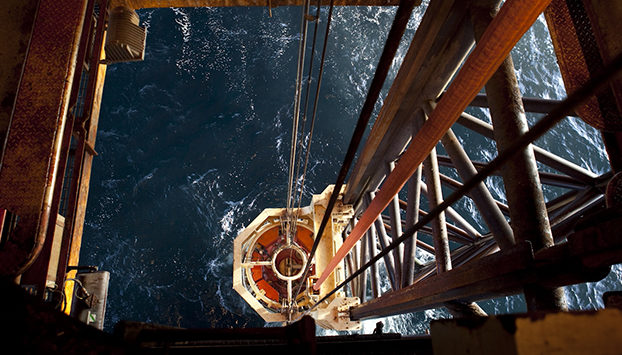
Oil halted a surge above $46 as investors weighed Iran’s progress toward raising output amid a market glut against signs of reduced U.S. supplies.
Futures fell as much as 1.5 percent in New York, after rebounding 4.5 percent on Monday. Iran took another step toward implementing a deal to curb its nuclear program in return for sanctions relief that will allow the OPEC member to boost crude exports. U.S. stockpiles are forecast to have shrunk for a second week amid signs that producers are spending less on drilling.
Iran’s vow to increase output “at any cost” to reclaim market share will potentially add to a global surplus that Goldman Sachs Group Inc. predicts may keep prices low for the next 15 years. Oil explorers in the U.S. are idling rigs and the nation’s production has slid from the highest level in more than three decades.
“Iranian supply will put downward pressure on crude, but the drop will be limited as prices have almost reached a bottom,” Will Yun, a commodities analyst at Hyundai Futures Corp. in Seoul, said by phone. “The U.S.’s declining supply will support crude and prices are likely to move in a narrow range for a while.”
West Texas Intermediate for October delivery, which expires Tuesday, lost as much as 70 cents to $45.98 a barrel on the New York Mercantile Exchange. The contract climbed $2 to $46.68 on Monday, the biggest rally since Sept. 16. The volume of all futures traded was about 37 percent below the 100-day average. The more-active November contract was down 65 cents at $46.31 at 1:02 p.m. Singapore time.
Nuclear Inspectors
Brent for November settlement decreased as much as 53 cents, or 1.1 percent, to $48.39 a barrel on the London-based ICE Futures Europe exchange. It gained $1.45 to $48.92 on Monday. The European benchmark crude traded at a premium of $2.09 to WTI for the same month.
Iran’s cooperation since a July 14 accord with world powers over its atomic program has advanced the International Atomic Energy Agency’s investigation into past nuclear activities, inspectors said Monday in Vienna. Once the IAEA completes its assessment and Persian Gulf nation complies with the terms of the agreement, sanctions against its financial and energy industries may be lifted.
Oil producers such as BP Plc and Royal Dutch Shell Plc have expressed interest in developing reserves in Iran, the world’s fourth-largest, once penalties are removed. It pumped 2.9 million barrels a day in August, ranking as the fourth-largest producer in the Organization of Petroleum Exporting Countries.
Drilling Slowdown
U.S. crude inventories may have dropped by 1.65 million barrels in the week ended Sept. 18, according to the median estimate in a Bloomberg survey of eight analysts before Energy Information Administration data on Wednesday. Stockpiles were at 455.9 million barrels through Sept. 11, almost 100 million more than the five-year average for this time of the year.
Production in the world’s largest oil consumer has slowed for six weeks as the price slump over the past year takes its toll on the U.S. shale industry. Explorers idled active rigs the past three weeks, data from Baker Hughes Inc., an oilfield services company, showed Friday.